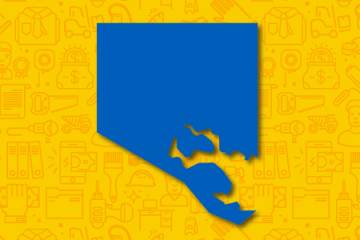It's right there in the name: Johns Hopkins University's Ten by Twenty vision plan is a pledge to pursue 10 institutional goals by 2020. Now university President Ronald J. Daniels is offering $20,000 to the students, faculty, or staff that have a great idea to advance any one of those goals in the plan's final year.
The annual Ten by Twenty challenge asks people to focus on "One Year, One Goal," by choosing any of the goals outlined in the plan and submitting an idea to meaningfully advance it by December 2020. Proposals will again be accepted through the Idea Lab crowdsourcing platform starting Oct. 14. The idea with the most votes—and several ideas chosen by committee—will receive funding.
The Idea Lab will also feature opportunities to apply for the annual Diversity Innovation Grants, sponsored by the Diversity Leadership Council, and the Office of Sustainability's annual grants. Over four years of Idea Lab cycles, 39 projects have been awarded funding across the three challenges, 263 ideas have been submitted, and more than 34,000 votes have been cast.
"Previous challenges focused on the Ten by Twenty's core priorities of one university, commitment to our communities, and individual excellence," Daniels says. "This year, as we enter the home stretch of the Ten by Twenty, we are counting on our community to lead us to a strong finish by submitting ideas inspired by any of the 10 goals that will help make the university more impactful than ever."
Last year, the Ten by Twenty challenge theme was "Ideas Bridging Divides." The student organization Discourse received the most votes and earned $20,000 to fund the series Growing Up in Baltimore, a collection of events centered around what it means to be a child, teenager, and adult in the city.
"We wanted to create spaces on campus for conversations about the city that we live in and for students to connect with the Baltimore community in ways that we had never seen on campus before," says Caroline West, who is now a senior International Studies major in the Krieger School of Arts and Sciences.
The events featured art by elementary school students, the Lethal Ladies step team, young poets from Dew More Baltimore, young filmmakers from Baltimore Youth Film Arts, and a photography exhibition by Shan Wallace.
"At the time of our application, our organization was just under a year old," West says. "This award provided the funding and structure that a new group like ours needed to successfully execute a major event series. We also appreciated the insights and resources provided by members of the Idea Lab, who helped us better articulate our goals and ideas and guided us toward university offices and personnel who were instrumental in the implementation of our plans."
The Diversity Leadership Council started its grant program in 2012 and has been part of the Idea Lab since it launched in 2015. It awards grants up to $2,500 to individuals and teams from the university and health system.
Recent winners encouraged high school students to pursue STEM careers, hosted events to highlight LGBTQ issues, and created a video for the Homewood Museum that explored the lives of free and enslaved families that resided there in the 19th century.
"One of the things that's truly unique about Hopkins is our size and breadth, from our academic divisions to the Applied Physics Laboratory and the health system," says Ashley Llorens, chair of the Diversity Leadership Council. "This year, we'd like to focus our Diversity Innovation Grant projects on finding new and innovative ways to collaborate across divisions to advance diversity and inclusion. Toward this aim, we are implementing a simple twist on grant rules: Each proposal must have co-leads from at least two different divisions at Johns Hopkins."
The Office of Sustainability has increased its annual grant program award to $7,500 and is asking the Johns Hopkins community to submit ideas around sustainability, the institution's greenhouse gas emissions, water use, waste generation, JHU's impact on Baltimore, or other topics. Ideas can be research-based, an event, or a new project.
"Sustainability brings enormous value to Johns Hopkins and the region through environmental, economic, and social benefits," says Jason Mathias, strategic initiatives coordinator for the JHU Office of Sustainability. "We're always looking at ways to improve this value and be better environmental stewards."
Details about each challenge and submission requirements are on the Idea Lab website. Individuals can post ideas when the cycle begins on Oct. 14 and then choose their favorites during the voting period. Access to the site requires signing in with a JHED ID.
Posted in University News
Tagged ten by twenty, idea lab









